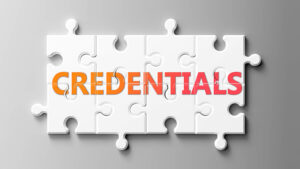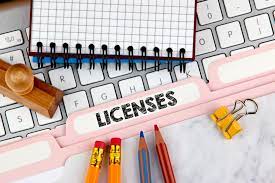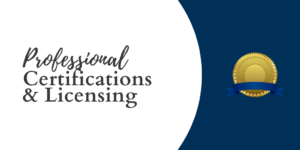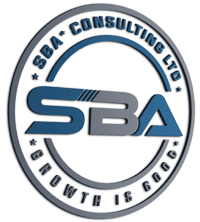Don’t confuse “credentials” with Professionalism
Today more than ever before, everyone is busy adding post nominals to their names. College degrees, advanced degrees, licenses, and certifications. Each is allegedly an insight into their competency and professionalism.
Unfortunately, college degrees, licenses, and/or certifications are not the same, especially from a legal sense. They all don’t immediately mean that a) you’re competent or b) you’re a professional.
 Degrees
Degrees
A degree just signals that you met the basic requirements of an educational institution. Not all Baccalaureate degrees are equivalent. Not within a particular university or college. And especially not between universities and colleges. STEM degrees are usually considered some of the most difficult degrees to attain, and some colleges are know to have extremely difficult programs.
Even if you received a required degree to enter your chosen profession, such as a MD, JD or BS/MS Accounting, it doesn’t mean you can fully practice your chosen profession. There are licensing requirements that often times include some type of apprenticeship. The exception is accounting.
Once your college degree is awarded, the odds of it being retracted are almost nil.
Licenses
I’ll base the following on what I understand the current law is in New York State; however, it is probably similar where you live.
 To practice medicine or most of the span of medical professions, an individual must have received a degree from an accredited educational institution, and usually passed specified tests given by either the State or State approved tests. Accounting is a little different, in that you don’t need any license to practice accounting.
To practice medicine or most of the span of medical professions, an individual must have received a degree from an accredited educational institution, and usually passed specified tests given by either the State or State approved tests. Accounting is a little different, in that you don’t need any license to practice accounting.
However, that said, if you want to issue a comment on financial status (public audit) of a company/individual, then you need to work for a Public Accounting Firm and hold a license as a Certified Public Accountant. The CPA license also allows you to represent third parties in front of the IRS. This right is shared with two other professionals, Lawyers and those who have passed the IRS Enrolled Agent test.
If you don’t do those two activities, you do not need a CPA license. In fact, a CPA license does one no good when working for a company, as you would not be able to issue that public confirmation (public audit) of financial status since you would have a conflict of interest.
Certifications
Certifications tell you that an individual has usually passed tests by some group. These tests allow you to use those post-nominals. Some certifications issued by the government are similar, but not the same as licenses, such as those held by an Emergency Medical Technician or Paramedic. The differences can be varied and remarkable.
Why Certifications vs Licenses.
Most licenses have governmental groups that are there to maintain the levels that are considered acceptable for the licensees. Medical practitioners (Doctors/Nurses) have the Office of Professional Misconduct, Lawyers have the Bar, CPAs also have a State based Office of Professional Standards.
Violation of accepted standards can result in loss of one’s license and livelihood. What is also unique is not only the accepted standards of practice, but of ethics. Being convicted of a DWI or DUI and your license can be suspended or revoked.
Believe it or not, my Federal Communications Commission Amateur (HAM) Radio License can be revoked based on unacceptable behaviors on my part.
Those who are certified by non-governmental agencies have no similar governmental oversight. According to Michael Molder “Anybody who claims professional expertise — whether that’s what we consider a profession or trades like carpentry or landscaping — are going to be bound by the ordinary and reasonable standard of care in that industry/profession.” He went on to say, “The practitioner is bound by the standards of the profession, which usually come from these organizations. Whether or not they are members or hold the certifications, the practitioner gets held to the standard.”
Degrees, Licenses and Certifications ≠ Professionalism
 So why don’t degrees, licenses and certifications automatically make you professional? Remember the criteria; passing a test or series of tests with a minimum passing grade(s). At this point you have shown minimum level of competency of the subject matter. Passing a test doesn’t necessarily mean you know the curriculum or whether you can competently exercise the precepts of that information.
So why don’t degrees, licenses and certifications automatically make you professional? Remember the criteria; passing a test or series of tests with a minimum passing grade(s). At this point you have shown minimum level of competency of the subject matter. Passing a test doesn’t necessarily mean you know the curriculum or whether you can competently exercise the precepts of that information.
Competence isn’t always a binary relationship. A lawyer who only practices Real Estate law may know nothing about criminal law. That person even though a lawyer is not qualified to practice in that area of law. Practicing may constitute malpractice, as their conduct in the courtroom would bring the ire of the Judge. The same can be said for Medical Doctors who specialize in Dermatology. Would you want them to provide Orthopedic Surgery services to you? Would they be qualified?
Practicing outside your knowledge base is not professional. Not living up to ethics, whether business, medical or legal, is not being professional.
Currently there are many associations or organizations who have created certifications for their membership. These certifications are always a for-profit activity for the organization. The quality and difficulty of the testing requirements vary greatly.
Some certifications might be compared to “bird courses”, others might be very difficult. I took two widely different tests, one for a HAM Radio License, the other for a U.S. Coast Guard internal certification.
Not a “bird course”
The HAM license test was 98% electrical engineering. Not only was I not interested in electrical engineering, but I also didn’t want to learn any electrical engineering. I wanted the privileges that the highest-level HAM license afforded me. I had no intention of building my own radio.
The test is 50 questions and comes out of a test bank of 5,000 questions. It took me three tries to pass, and I did so by memorizing all 5,000 questions. What do I know about electrical engineering, not much (and that is being generous)!? But I passed the exam and obtained the extra radio band-width privileges I wanted.
I took a Coast Guard test that was an open book and I think 100 questions. It had 30 different manuals, policy guides, procedural guides open on my desktop. I passed the exam because I know how to research [answers], not that I had mastered any aspect of the information. Again, I passed with little, or no knowledge and with no information retained.
What is professionalism?
A simple concept. Behavior where your actions are guided by generally accepted standards. One might even say “do unto others as you would like others do unto you”.
You are a professional when a patient is informed the practitioner is delayed. You are not a professional when you let them sit for hours.
You’re a professional after you interview a candidate for a job to send them updates and or short rejection letters that are not insulting. Failure to contact them (these days we call that ghosting) is not professional.
Not responding to a customer complaint is not professional. Sending sales pitches that contain bold-faced lies or fraudulent statements is not professional.
The list of what is and isn’t professional is long and varied, but the key is that you don’t need a degree. You don’t need a license. And you certainly don’t need a certification to either be or not to be professional.
It’s all about your actions to others. Your usable and demonstrated knowledge base in business, not on a test.
